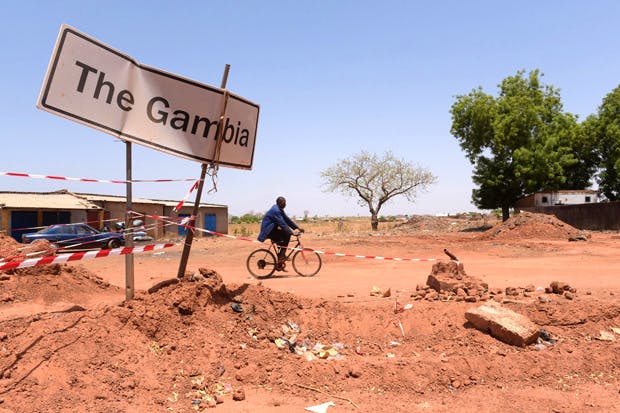
A Country longing for a better Moses, for a better Mandela, and for a better polity
My last trip to Gambia was my first trip where I did not go to collect data or conduct any kind of research. It was also my first trip where I did not spend most of my time in the provinces. I was simply in The Gambia to observe, catalogue, enjoy my family, friends, and our wonderful country. However, there was so much happening in the country and I struggled to capture the essence of everything around me. I have so much to tell you but I need a bigger platform than this medium to dissect the many issues I would like to discuss.
Firstly, Gambia, in my view, is not a country on the ascendency, but on a precipitous decline. Secondly, and a point of emphasis, The Gambia is not a serious state. The folks at the helm are just winging it — etching and sketching their way to oblivion. Mediocrity abounds and the ever swelling numbers of impoverished masses are more worried about their next meal than the governance of the state.
Consequently, the country has all the hallmarks of a failed state: massive unemployment, underemployment, inflation, economic contraction (if this happens in the West, we would call it an economic depression, with all the attendants of urgency and seriousness. But, since we are not a serious country, who cares what the hell we call it, it’s just semantics, right?). The loss of human capital due to lack of investment in human capital and human flight, a crumbling and decayed health and education system, and an inept and corrupt government. The security of the state has been mortgaged to foreign forces. Put differently, we are at the mercy of the Senegalese colossus for our security. The state does not have control over its own security.
Thirdly, the aging population in some parts of the provinces coupled with the youth bulge in the Kombos is a ticking time bomb. In addition, if the state does not do something about the land crisis in the Kombos, it’s going to get really ugly and nasty.
The Gambia is slowly becoming an urban country, where a good many of the populace lives in the urban, peri urban areas. Many people have been displaced from their ancestral lands in the Kombos, creating a huge housing and economic crisis.
Fourthly, what I have observed is that we are malignantly reliant on outside dough, from foreign aid, tourism (this includes semesters), and remittances. And, without remittances — the economy would catastrophically bottom out. We cannot build an entire economy around remittances alone. Evermore evident in the latest developments along the Kombo coastline, overwhelmingly funded by semester dollars — and remittances conservatively accounting for 22% of our GDP. The Semesters are a huge constituency and I reckon most of the youth would like to be part of this constituency, in order to escape the poverty trap.
JFK said that, the one true measure of a nation is its success in fulfilling the promise of a better life for each of its members. In the case of The Gambia, the state has failed in this capacity, as well — and this promise lies beyond the shores of the country, for a good many of the youth. As a result of this, traveling to “Europe” for our youth, either “Back way” or not, is not a choice, but a necessity. They also want to afford the new D1.5 million homes on the Atlantic.
Because of Gambian fatalism, our “Bayee Ko C Loho Yallah” mentality, it seems like we, collectively, have lost the capacity to question the present, much less offer alternatives to it. Which begs the question: why is it so behind us to conceive of a different set of arrangements to our common advantage? The current arrangement, my comrades, has been disastrous.
Finally, for those of us who dabble in the world of theories, of academic exercise, of philosophies — we would be terribly disappointed, for, my friends, Gambia is where all of our great theories, gallant literatures, and philosophies come to a seismic halt. All evident, given that absent for a few skirmishes — the state, for all intents and purposes, has failed in all aspects, every single one — to wit, security, education, healthcare, housing. I mean, the state cannot meet the basic demands of the populace. The fact that the state hasn’t collapsed yet, beggar’s belief, honestly.
To that end, is the Gambian state tenable? What does all of these foretold? I’m not sure but, I do know that, we need to charter a better path. We need a better polity. A better Mandela. A better Moses to lead us to the Promised Land, for this Moses, is myopically punching above his weight. And, perhaps, we need a better God of Gambian politics. To that, I say, we need a better Gambia.
Watch out for this space. For my next dispatch, I would offer suggestions and alternatives to our current situation. I have so much to say, folks. More to come from my dispatches from home — The Gambia.
So long for now!
By Saul Njie, Ph.D.

The author is a visiting Professor of Political Science, Bluefield State College & a Policy Analyst at the United States Government Accountability Office
This opinion piece is the first from Dr Njie’s Dispatches from The Gambia: “The Fierce Urgency of Now”.










One Comment